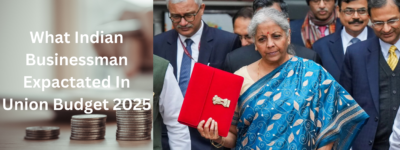Union Budget 2025:-

Union Budget of india 2025
Key Highlights and Expectations

The Union Budget 2025, presented by Finance Minister Nirmala Sitharaman on February 1, 2025, comes at a crucial time as India continues its journey towards economic resilience and sustainable growth. This budget aims to address key economic challenges, introduce structural reforms, and provide a roadmap for India’s economic future. Here’s a detailed look at the major highlights and expectations from the Union Budget 2025.
Economic Growth and Fiscal Policy
India’s GDP growth for the fiscal year 2025-26 is projected to be in the range of 6.3% to 6.8%. To maintain fiscal discipline, the government has reaffirmed its commitment to reducing the fiscal deficit to 4.5% of GDP by 2026. Despite global economic uncertainties, the government’s focus remains on balancing fiscal prudence with growth-driven initiatives.
Tax Reforms and Relief Measures
Income Tax Relief: Expectations were high for changes in the personal income tax slabs, especially for the middle-class population. There are speculations of an increase in the basic exemption limit and possible tax deductions to boost disposable income.
GST Reforms: The government is considering reducing GST rates on essential healthcare and insurance products to make them more accessible and affordable.
Corporate Tax Adjustments: Startups and MSMEs may benefit from additional tax incentives to promote business growth and job creation.
Infrastructure and Capital Expenditure
The government has allocated significant funds to infrastructure development, with a focus on roads, railways, and energy projects. Public-private partnerships (PPP) are being encouraged to accelerate the execution of mega projects. The emphasis remains on enhancing connectivity and logistics to support industrial growth.
Healthcare and Education
Increased Healthcare Spending: The government aims to increase healthcare expenditure to 2.5% of GDP, ensuring better medical facilities and access to affordable healthcare.
AI and Digital Learning: The education sector is set to receive a boost with investments in AI-driven learning platforms, skill development programs, and research initiatives in emerging technologies.
Digital Transformation and AI Policy
The budget is expected to introduce policies promoting the integration of artificial intelligence across various industries, including manufacturing, healthcare, and education. AI research and development incentives are likely to position India as a leader in this space.
Sustainability and Green Energy Initiatives
With a growing emphasis on sustainability, the government has allocated funds for renewable energy projects, electric vehicle infrastructure, and climate-resilient agricultural practices. Incentives for solar power, wind energy, and clean-tech startups are anticipated to boost the green economy.
Conclusion
Union Budget 2025 is a blend of economic pragmatism and futuristic planning. While the focus remains on fiscal discipline, tax relief, infrastructure development, and digital transformation, it also paves the way for a sustainable and inclusive economic framework. As businesses and individuals analyze the impact of the budget, the coming months will reveal how effectively these measures translate into real economic growth.
As the Union Budget 2025 approaches, Indian business leaders have articulated several key expectations to foster economic growth and innovation:
Infrastructure Development: S.N. Subrahmanyan, CEO of Larsen & Toubro (L&T), anticipates a budget focused on infrastructure expansion. He emphasizes the importance of continued investment in this sector to stimulate economic activity.
Technological Advancement and Sustainability: Ankit Kedia, Founder of Capital-A, advocates for policies that promote smart manufacturing technologies, including AI and automation. He suggests extending the Production Linked Incentive (PLI) scheme and providing grants for advanced manufacturing to enhance global competitiveness. Additionally, Kedia calls for a green investment framework to support sustainable manufacturing and circular economy innovations.
Support for Startups and Emerging Technologies: Industry experts are urging the government to bolster the startup ecosystem by addressing challenges related to funding, taxation, and regulatory frameworks. There’s a call for increased support in areas like artificial intelligence, fintech, and manufacturing to drive innovation and economic growth.
Education and Skill Development: Mridu Andotra, Founder & CEO of GeniusMentor, highlights the need for dedicated funding to integrate AI into educational institutions. She recommends allocating a specific portion of the education budget to AI-driven learning infrastructure, teacher upskilling, and the establishment of AI labs in schools to prepare students for future challenges.
Tax Reforms and Financial Incentives: Ajay Lakhotia, Founder & CEO of StockGro, suggests tax reforms to increase disposable income and encourage investments. Proposals include raising the standard deduction in income tax and increasing the Long-Term Capital Gains (LTCG) exemption limit to ₹5 lakh. Additionally, reducing the Securities Transaction Tax (STT) and expanding capital gains exemptions under specific sections could strengthen the investment ecosystem.
These insights reflect the business community’s aspirations for a budget that balances infrastructure development, technological innovation, support for startups, educational advancement, and tax reforms to drive India’s economic growth.
What are your thoughts on Budget 2025? Share your insights in the comments below!


